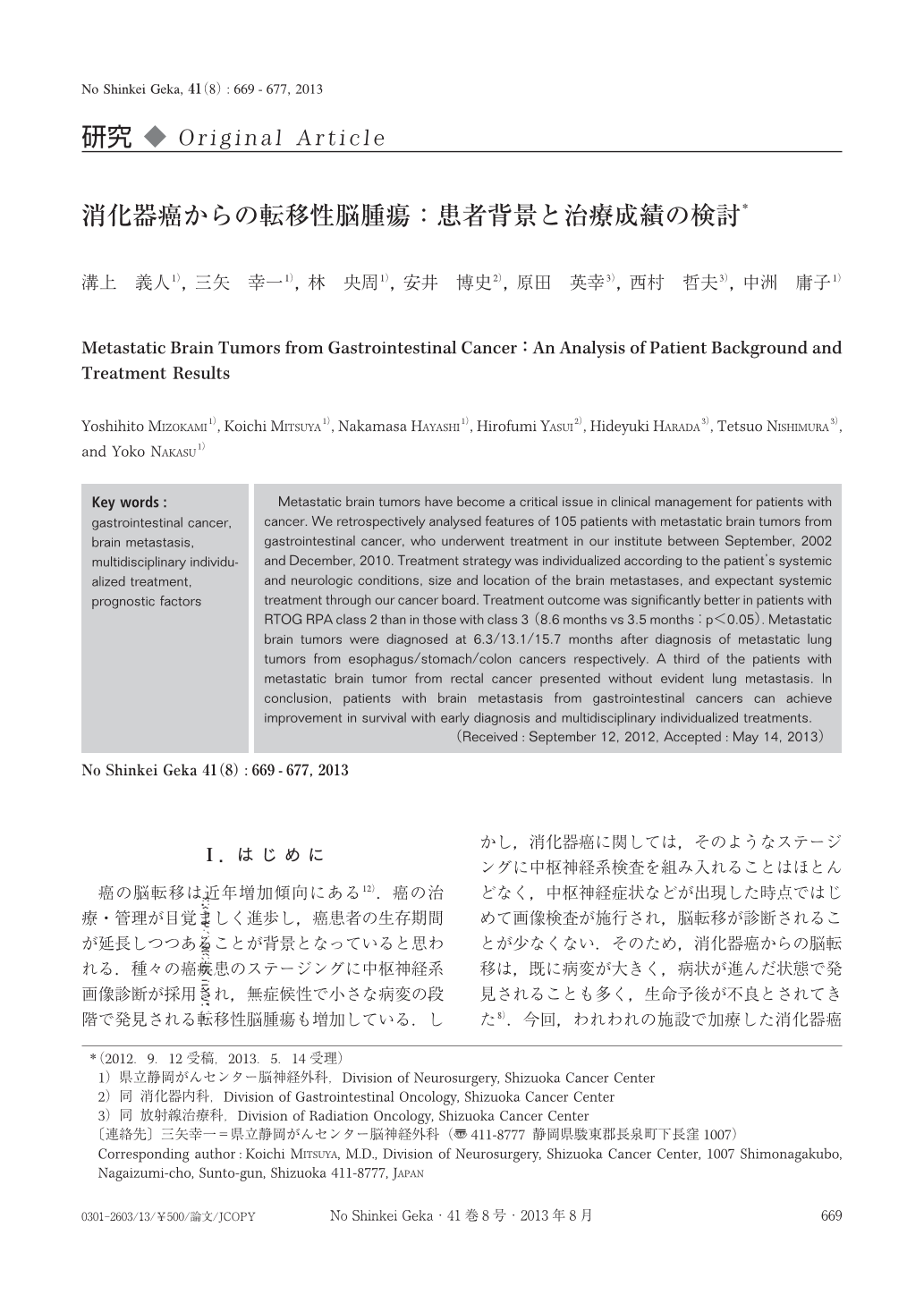Japanese
English
- 有料閲覧
- Abstract 文献概要
- 1ページ目 Look Inside
- 参考文献 Reference
Ⅰ.はじめに
癌の脳転移は近年増加傾向にある12).癌の治療・管理が目覚ましく進歩し,癌患者の生存期間が延長しつつあることが背景となっていると思われる.種々の癌疾患のステージングに中枢神経系画像診断が採用され,無症候性で小さな病変の段階で発見される転移性脳腫瘍も増加している.しかし,消化器癌に関しては,そのようなステージングに中枢神経系検査を組み入れることはほとんどなく,中枢神経症状などが出現した時点ではじめて画像検査が施行され,脳転移が診断されることが少なくない.そのため,消化器癌からの脳転移は,既に病変が大きく,病状が進んだ状態で発見されることも多く,生命予後が不良とされてきた8).今回,われわれの施設で加療した消化器癌からの脳転移をもつ患者について,背景と治療成績を後方視的に検討し,近年の集学的,積極的治療の効果を文献上の成績と比較した.さらに,原発巣ごとの脳転移に至る経路・時間を分析することにより,その特徴を明らかにして臨床における早期診断に寄与し得る方法を探った.
Metastatic brain tumors have become a critical issue in clinical management for patients with cancer. We retrospectively analysed features of 105 patients with metastatic brain tumors from gastrointestinal cancer, who underwent treatment in our institute between September, 2002 and December, 2010. Treatment strategy was individualized according to the patient's systemic and neurologic conditions, size and location of the brain metastases, and expectant systemic treatment through our cancer board. Treatment outcome was significantly better in patients with RTOG RPA class 2 than in those with class 3(8.6 months vs 3.5 months:p<0.05). Metastatic brain tumors were diagnosed at 6.3/13.1/15.7 months after diagnosis of metastatic lung tumors from esophagus/stomach/colon cancers respectively. A third of the patients with metastatic brain tumor from rectal cancer presented without evident lung metastasis. In conclusion, patients with brain metastasis from gastrointestinal cancers can achieve improvement in survival with early diagnosis and multidisciplinary individualized treatments.

Copyright © 2013, Igaku-Shoin Ltd. All rights reserved.


